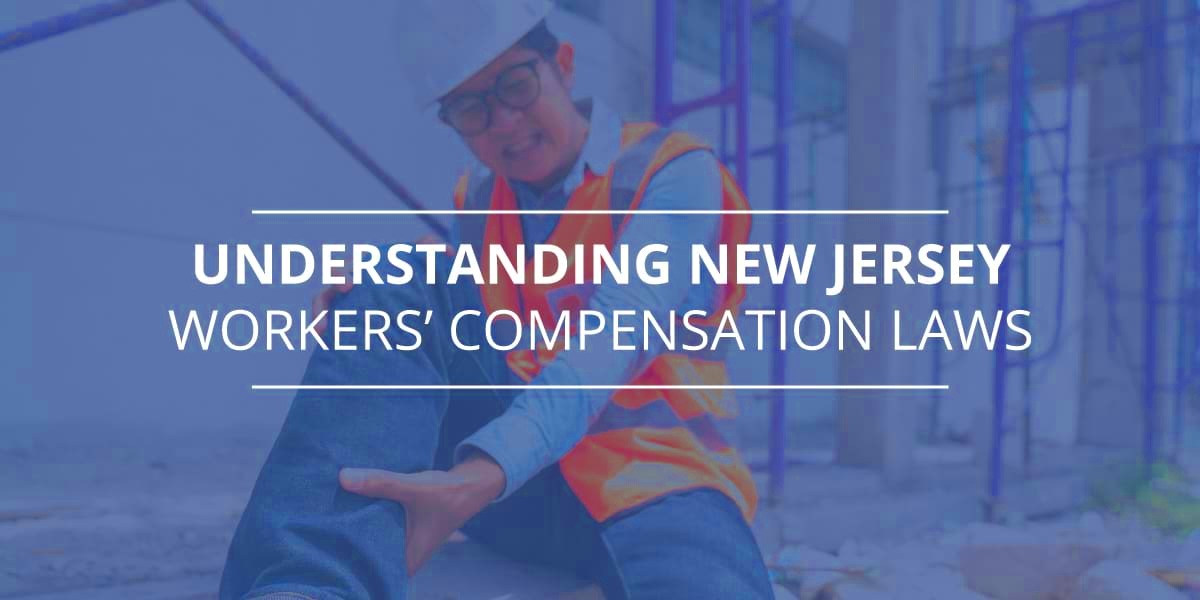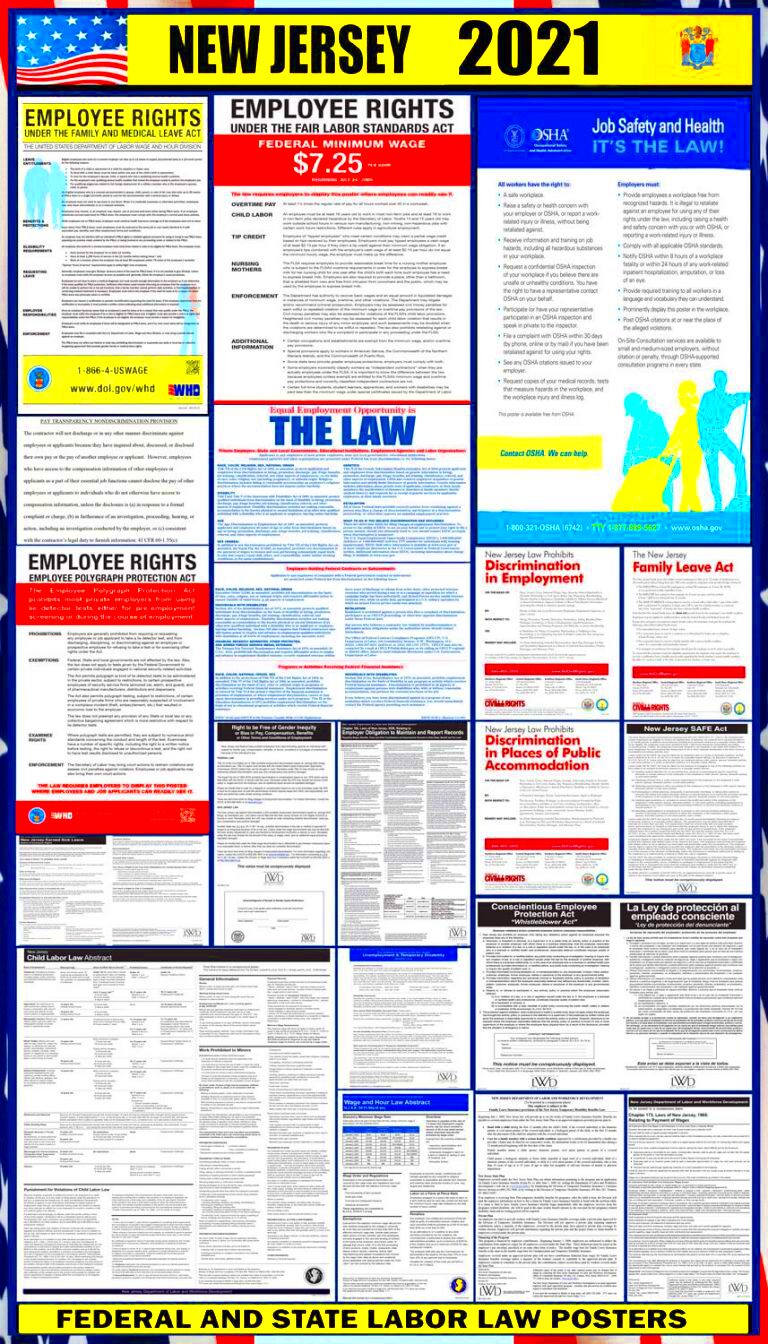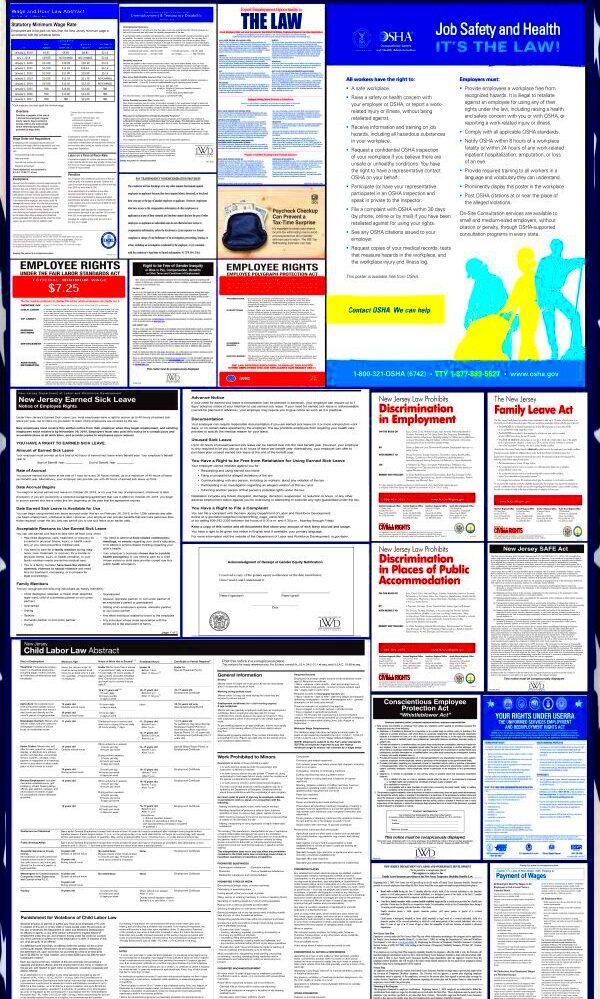Understanding New Jersey Labor Laws
New Jersey labor laws are designed to protect the rights of workers and ensure fair treatment in the workplace. These laws cover various aspects, including wages, working conditions, and employee rights. Understanding these laws is essential for both employees and employers to foster a fair and safe work environment.
Key Rights for Employees in New Jersey

Employees in New Jersey enjoy several important rights that help create a fair workplace. Here are some key rights:
- Right to Fair Wages: Employees must be paid at least the minimum wage for their work.
- Right to Overtime Pay: Non-exempt employees are entitled to overtime pay for hours worked beyond 40 in a week.
- Right to a Safe Workplace: Employers must provide a work environment free from recognized hazards.
- Right to Family Leave: Employees can take time off for family or medical reasons without fear of losing their job.
- Right to Protection from Discrimination: Employees are protected from discrimination based on race, gender, age, and other factors.
These rights are vital for ensuring that all workers are treated with respect and fairness in their jobs.
Minimum Wage and Overtime Regulations

In New Jersey, the minimum wage is an important aspect of labor laws that helps protect workers’ financial well-being. As of 2024, the minimum wage is set at $15 per hour. This applies to most employees, ensuring they receive fair compensation for their work. However, certain exceptions exist for specific categories of workers, such as tipped employees.
Overtime regulations also play a crucial role in protecting employees. In New Jersey, non-exempt employees must be paid 1.5 times their regular hourly rate for any hours worked over 40 in a workweek. This means if an employee earns $15 per hour, their overtime pay would be $22.50 per hour.
Employers must keep accurate records of hours worked to ensure compliance with these regulations. Failure to pay minimum wage or overtime can lead to legal consequences for employers, including fines and back pay to affected employees.
Understanding these regulations is essential for both workers and employers to maintain a compliant and fair working environment.
Workplace Safety Standards in New Jersey
Workplace safety is a top priority in New Jersey. The state has strict regulations in place to ensure that all workers are protected from hazards that could lead to injury or illness. These standards are enforced by the New Jersey Division of Occupational Safety and Health (DOSH), which ensures compliance with safety laws and promotes safe working conditions.
Employers must adhere to the following key safety standards:
- Hazard Communication: Employers must inform employees about the hazardous substances they might encounter on the job and provide training on how to handle them safely.
- Personal Protective Equipment (PPE): Employers are required to provide appropriate PPE, such as helmets, gloves, and eye protection, to minimize risks.
- Emergency Preparedness: Workplaces must have emergency plans in place, including evacuation procedures and first-aid training.
- Reporting Accidents: Employers must report workplace accidents and injuries to DOSH to identify and address safety issues.
By following these safety standards, both employers and employees can create a safer work environment, reducing the likelihood of accidents and injuries.
Family Leave and Medical Leave Protections
New Jersey offers robust protections for employees needing time off for family or medical reasons through the Family Leave Act (FLA) and the Family and Medical Leave Act (FMLA). These laws ensure that employees can take the necessary time off without the fear of losing their jobs.
Here are some important aspects of these protections:
- Eligible Reasons for Leave: Employees can take leave for various reasons, including caring for a newborn, a sick family member, or their health issues.
- Duration of Leave: Under the FLA, employees can take up to 12 weeks of leave in a 24-month period.
- Job Protection: Employees are entitled to return to their job or an equivalent position after their leave ends.
- Health Benefits: Employers must maintain health insurance coverage during the leave period.
These protections empower employees to balance their work and family responsibilities without facing job insecurity.
Discrimination and Harassment in the Workplace
Discrimination and harassment in the workplace are serious issues that can negatively impact employees’ well-being and job performance. New Jersey law prohibits discrimination based on various factors, including race, gender, age, religion, and disability.
Here are some critical points to understand about workplace discrimination and harassment:
- Protected Classes: Employees are protected from discrimination if they belong to certain classes, such as those mentioned above.
- Harassment Defined: Harassment can include unwanted comments, jokes, or behavior that create a hostile work environment.
- Reporting Mechanisms: Employees should report discrimination or harassment to their employer or the New Jersey Division on Civil Rights (DCR) to seek resolution.
- Retaliation Prohibited: It is illegal for employers to retaliate against employees who report discrimination or harassment.
Creating a respectful and inclusive workplace is vital for fostering productivity and employee morale. Employers should implement policies and training to prevent discrimination and harassment while ensuring employees feel safe to speak up.
Understanding Workers’ Compensation
Workers’ compensation is an essential safety net for employees who suffer job-related injuries or illnesses. In New Jersey, this system ensures that workers receive necessary medical care and financial support while they recover. It’s important to understand how this system works to protect your rights and well-being.
Here are some key aspects of workers’ compensation:
- Eligibility: Almost all employees in New Jersey are eligible for workers’ compensation benefits, regardless of their employment status or duration.
- Benefits Offered: Workers’ compensation provides various benefits, including:
- Medical treatment costs
- Temporary disability payments if you can’t work
- Permanent disability benefits if the injury leads to lasting effects
- Death benefits for dependents if a worker dies due to a job-related injury
- Filing a Claim: Employees must report their injury to their employer as soon as possible. They usually have to fill out a claim form, which is then submitted to the insurance carrier.
- Employer’s Responsibility: Employers must have workers’ compensation insurance and ensure that employees are aware of their rights.
Understanding these components can help you navigate the workers’ compensation system effectively if you ever find yourself in need of assistance.
Resources for Employees and Employers
New Jersey provides various resources to help both employees and employers understand their rights and responsibilities regarding labor laws and workplace safety. Here are some valuable resources:
- New Jersey Department of Labor and Workforce Development: This state agency offers information on labor laws, wages, and safety regulations.
- Division of Occupational Safety and Health (DOSH): DOSH is responsible for enforcing workplace safety standards and providing safety training resources.
- New Jersey Division on Civil Rights: This division helps prevent discrimination in the workplace and provides guidance on filing complaints.
- Workers’ Compensation Court: Resources available here help employees understand the claims process and what to expect in hearings.
- Employee Assistance Programs (EAPs): Many employers offer EAPs that provide counseling and support for employees dealing with personal or work-related issues.
These resources can be invaluable in ensuring a safe and fair workplace while helping employees understand their rights and options.
Frequently Asked Questions
Many people have questions about labor laws and their rights in New Jersey. Here are some common inquiries:
- What should I do if I am injured at work?Report the injury to your employer immediately and seek medical attention. Then, file a workers’ compensation claim as soon as possible.
- Can my employer retaliate against me for filing a claim?No, it is illegal for employers to retaliate against employees for exercising their rights under workers’ compensation laws.
- What if I feel I have been discriminated against at work?You should report the discrimination to your employer and consider filing a complaint with the New Jersey Division on Civil Rights.
- How can I find out about my rights as an employee?Visit the New Jersey Department of Labor and Workforce Development website for comprehensive information on employee rights and protections.
Understanding these frequently asked questions can help empower employees to navigate their rights and responsibilities in the workplace.
Conclusion
Understanding New Jersey labor laws is crucial for both employees and employers. These laws are designed to protect workers’ rights, ensure fair wages, and maintain a safe workplace. Employees must be aware of their rights, such as workers’ compensation, family leave, and protections against discrimination and harassment. Employers also have a responsibility to comply with these regulations and create a respectful, safe, and inclusive work environment. By fostering a culture of understanding and compliance, both parties can contribute to a more positive and productive workplace.


